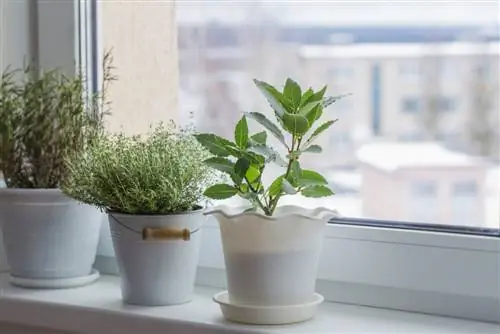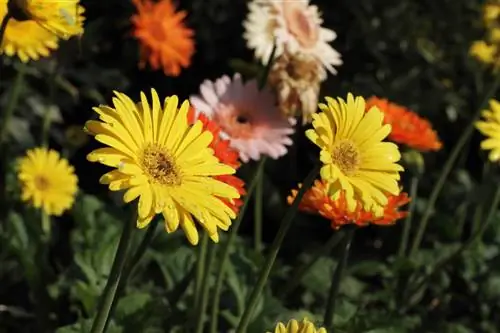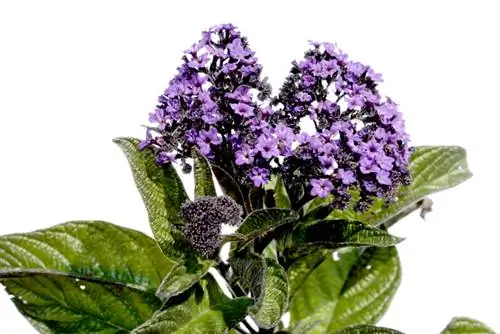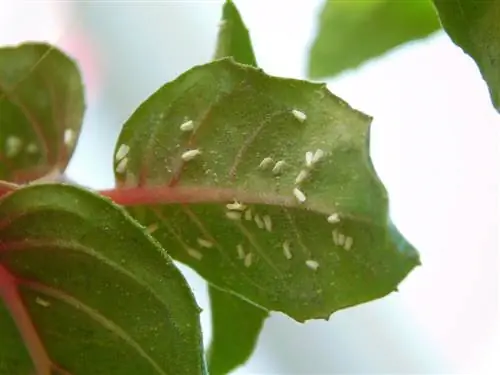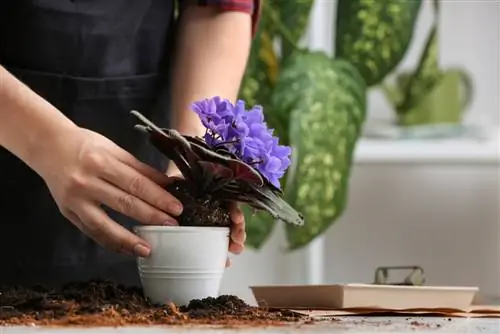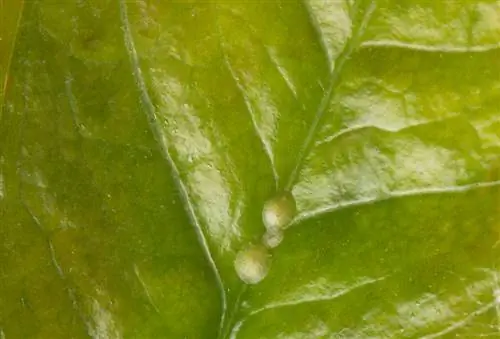- Author admin leonars@hobbygardeners.com.
- Public 2023-12-16 16:46.
- Last modified 2025-01-23 11:22.
Although houseplants stay in the home all year round, many specimens require special care in winter. Find out here how you can adapt basic requirements such as lighting conditions, watering amounts and fertilization to the cold season. With our tips, overwintering houseplants becomes child's play.
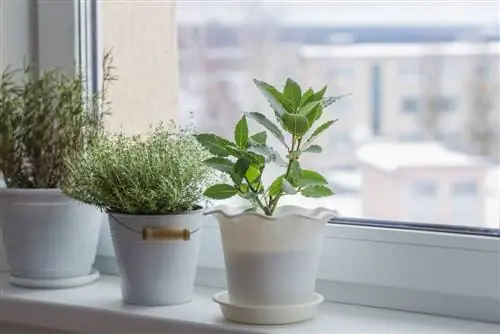
How can houseplants be cared for and overwintered in winter?
To overwinter houseplants successfully, provide sufficient brightness, dust off their leaves, restore humidity, reduce the amount of watering and avoid fertilizer. Check the plants regularly for pests.
Important care measures during the winter
With these tips, your houseplants will get through the cold season unscathed:
Ensure brightness
Short days and overcast skies deprive the plants of important daylight. However, this is an essential factor for photosynthesis, where the plant obtains sugar for growth. It is therefore best to place your houseplants on the windowsill, where they can enjoy at least a few hours of sunshine a day. Plants that bloom in winter, such as cyclamen or azaleas, are particularly dependent on this measure. Houseplants that are used to dark locations should also be brought into the light.
Dedusting leaves
Dust is not only unhygienic and reduces the appearance of your houseplant, but is also considered an additional light robber. Because plants absorb light through their leaves. Dampen a soft cloth with decalcified water and wipe the plant with it.
Restore humidity
When it's freezing outside, we at least want to be cozy and warm inside. However, the dry heating air is very difficult for your houseplants. You can ensure sufficient humidity by regularly spraying the leaves with water. This is particularly important for houseplants with tropical origins.
Adjust watering quantity
The darker a plant is, the less water it needs. Since the plants lack light in winter anyway, you can safely reduce the watering. Watering once a week is often sufficient.
Do not give fertilizer
During the winter, most plants retreat into the dormant phase and do not invest any energy into growth or flower formation. Accordingly, the nutrient requirement decreases. You should avoid fertilizer until March to avoid over-fertilization. An exception are plants that bloom in winter. Whether fertilizer is required is usually noted in the care instructions on the plant label.
Control
Dry heating air attracts pests. Check your houseplants regularly for any abnormalities.

